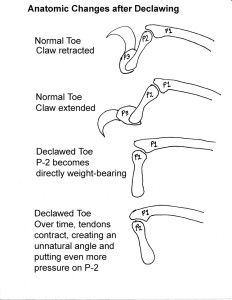
Assemblywoman Linda Rosenthal
After introducing several bills dealing with animal welfare, Assemblywoman Linda Rosenthal is working on a bill that would ban the declawing of cats in New York State.
While not yet introduced in the state Senate, Rosenthal’s ban would be paramount in making New York the first state to have a statewide ban on cat declawing.
The legislation would ban the procedure unless it was deemed medically necessary, such as to remove a tumor, remove a chronic ingrown claw, or for other medical reasons.
Rosenthal explains that the practice of removing cats claws is cruel, stating, “[Cats] are born with claws and they are meant to have claws. It’s cruel to remove them for the sake of human convenience and saving your furniture.” Continuing, “It’s really an amputation, it’s like if you amputated your finger or your toe at the last joint.”
While a commonplace practice at one point, cat declawing has become an increasingly controversial topic. There is growing support against the practice with many state groups forming to work on a ban. The Paw Project is a California-based group founded by Dr. Jennifer Conrad, DVM that has successfully advocated for a declawing ban in 8 California cities.
In an interview, Dr. Conrad described declawing as ‘de-knuckling’, going on to say, “If it were just the claw, it might not be so horrible. But because it’s actually the entire knuckle, the last bone in the cat’s toe, it is really an amputation. It is incredibly painful, and it does no good for the patient.”

Physical changes after declawing
Rosenthal’s ban is supported by The Paw Project, the ASPCA, and the Humane Society of New York. Conversely, the American Veterinary Medical Association states that declawing should be a last resort but does not support a ban. “Surgical declawing is not a medically necessary procedure for the cat in most cases.” but continues, “Declawing of domestic cats should be considered only after attempts have been made to prevent the cat from using its claws destructively or when its clawing presents an above normal health risk for its owner.” Only recently did the AVMA agree to refer to the procedure of delawing as “amputation”.
In 2010, it was estimated that around 25% of owned cats in the United States are declawed. One of the most common reason that owners declaw their cats is because of ruined furniture. Many times it is presented as a routine procedure that is included in spaying and neutering ‘packages’.
Physical negative effects of declawing can include lameness, infection, chronic back and paw pain, tissue necrosis, bone spurs, debilitating tendon contracture, and nerve damage. The way that they walk is also changed since, without the claws, cats will begin to bear most of their weight on the rear paws when the front paws are supposed to bear around 60% of body weight. In turn, many different behavioral problems may occur because of the physical changes like increased aggression and litter box issues.
There has already been some backlash against Assemblywoman Rosenthal’s legislation, with those against it arguing that the bill would take away the owners rights to have declawing as an option. Also, that without the option of declawing, more cats will be relinquished to shelters due to scratching their owners. “You are taking away a decision that should be made between an owner and the medical professional,” said Former President of the New York State Veterinary Medical Society, Chris Brockett, in an interview with the NY Daily News.
However, a national survey of shelters found that 70% of cats relinquished to shelters for behavioral problems were declawed. Another study done in 1996 by the Journal of the American Veterinary Medical Association (JAVMA) found that 52.4% of declawed cats were reported to exhibit litter box avoidance which increased their risk of being surrendered to a shelter.
Declawing is already banned in many countries: England, Scotland, Wales, Italy, France, Germany, Austria, Switzerland, Norway, Sweden, Netherlands, Northern Ireland, Ireland, Denmark, Finland, Slovenia, Portugal, Belgium, Spain, Brazil, Australia, and New Zealand.
















Follow Us